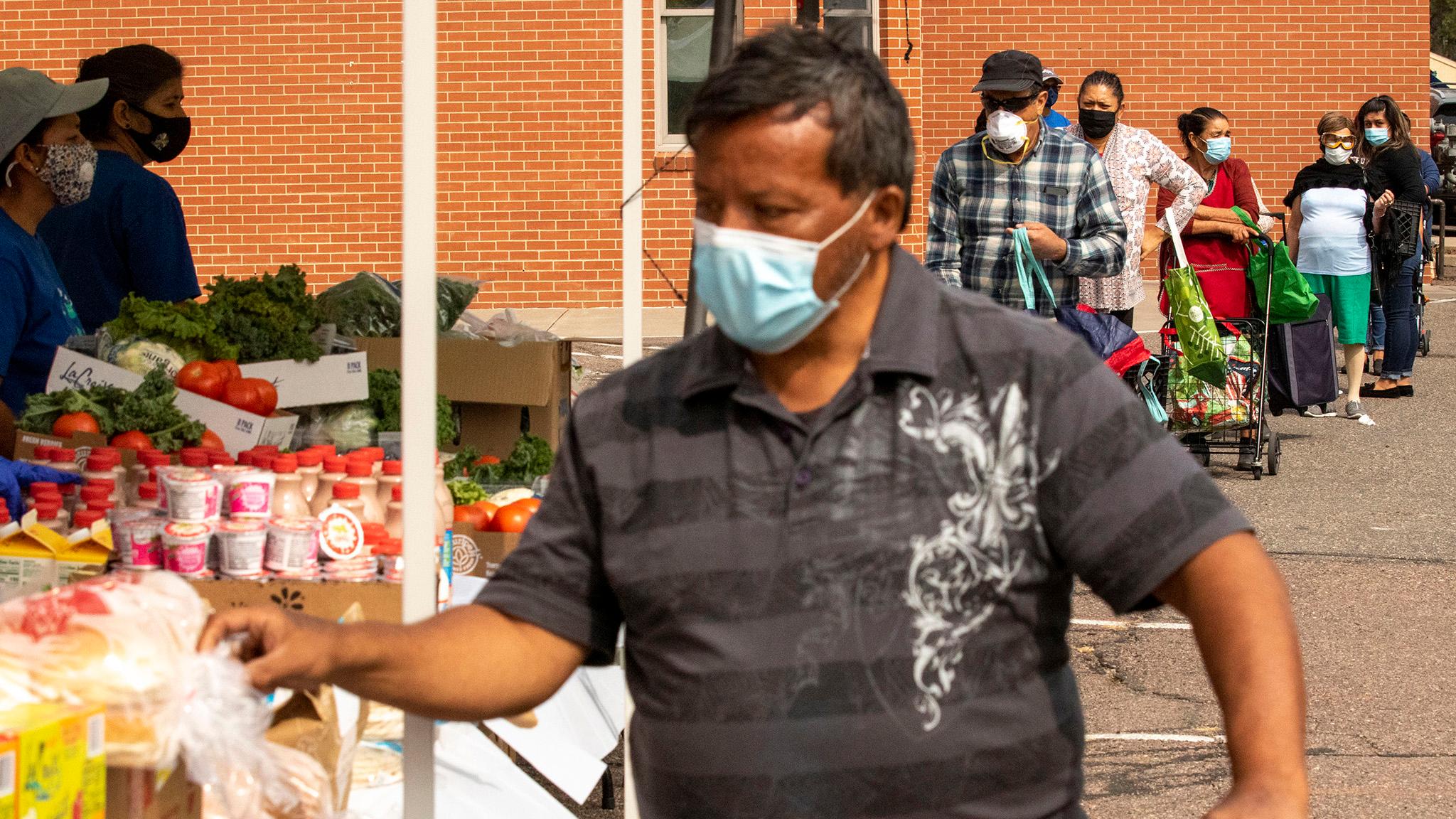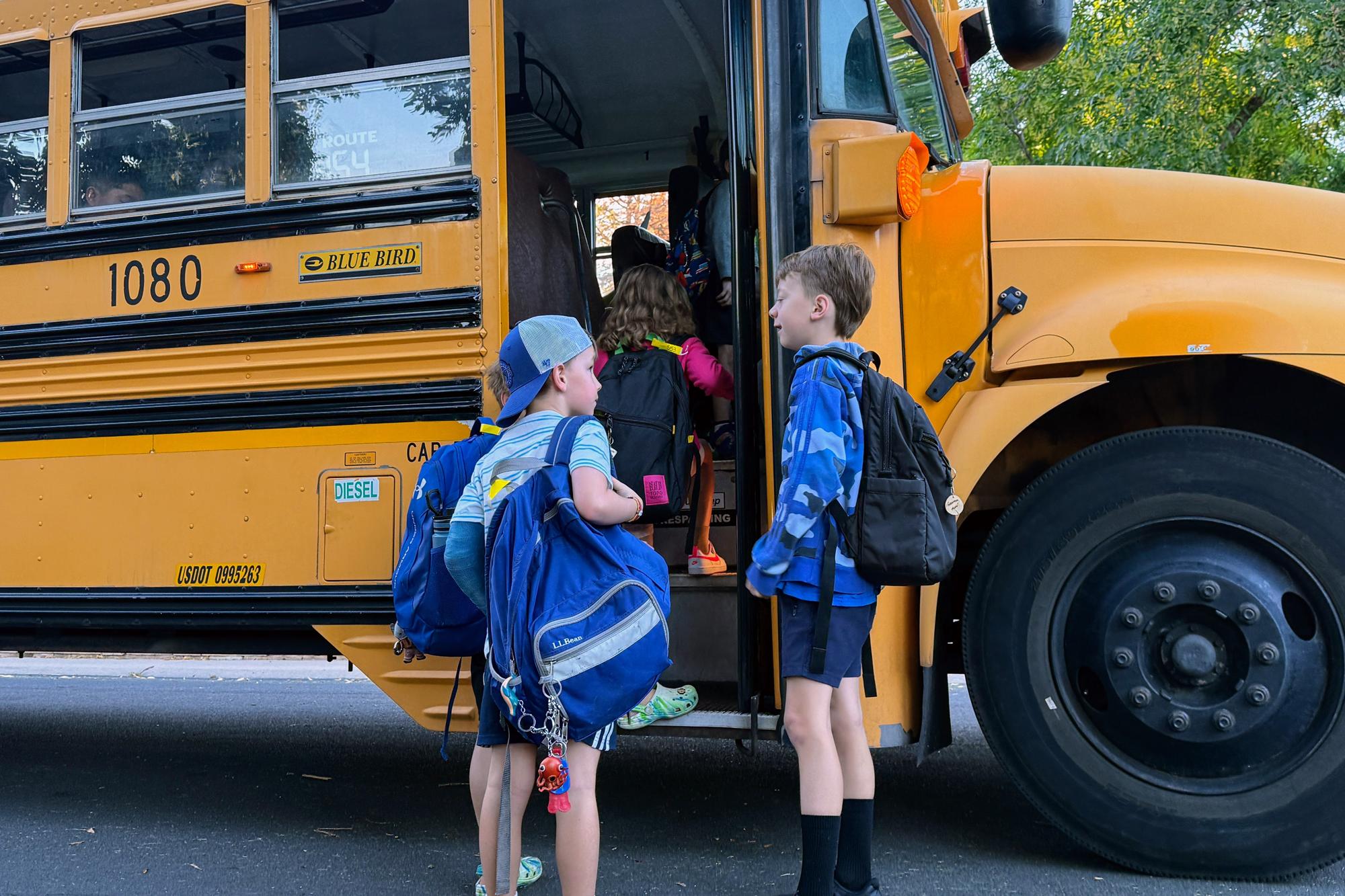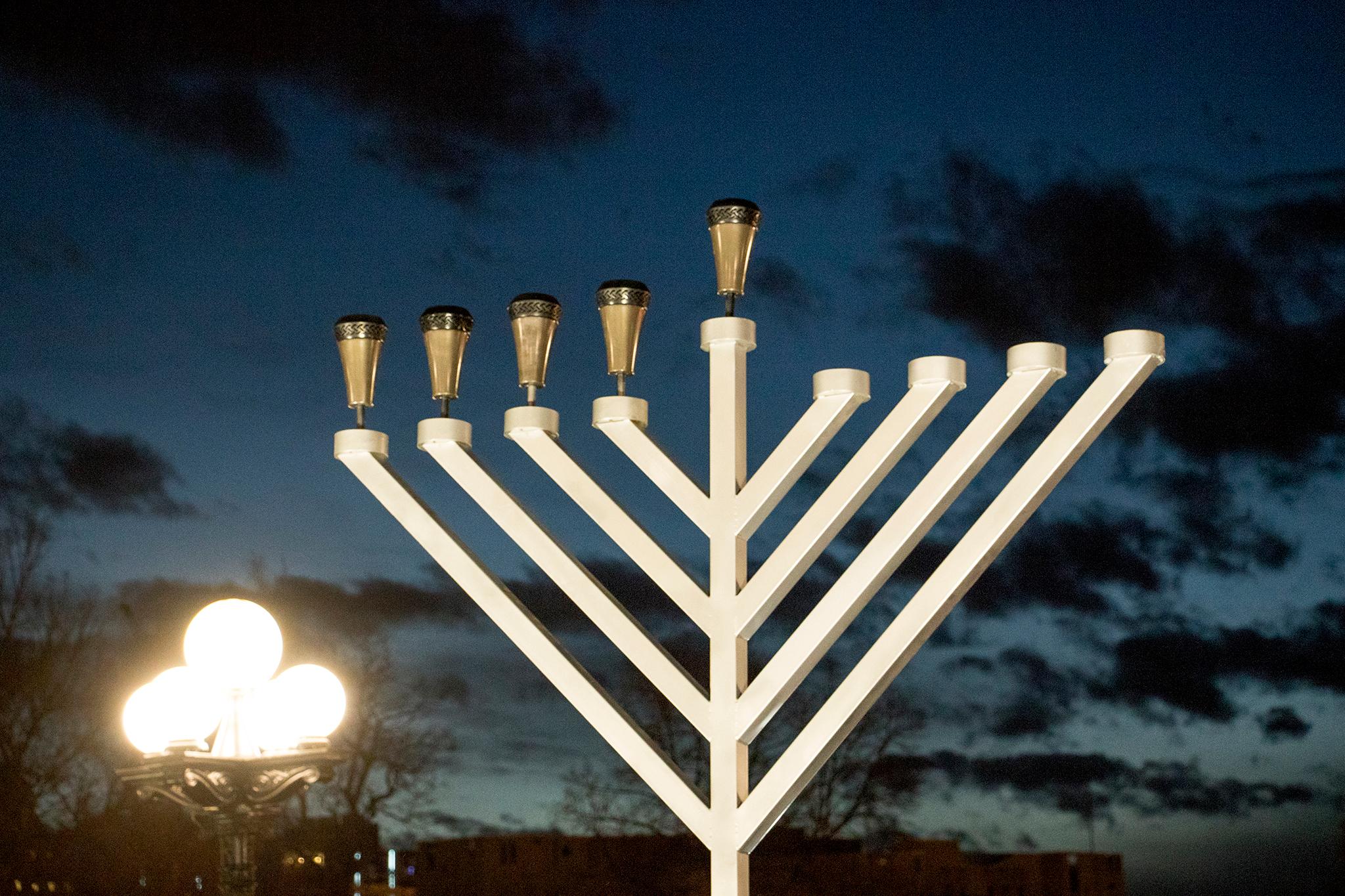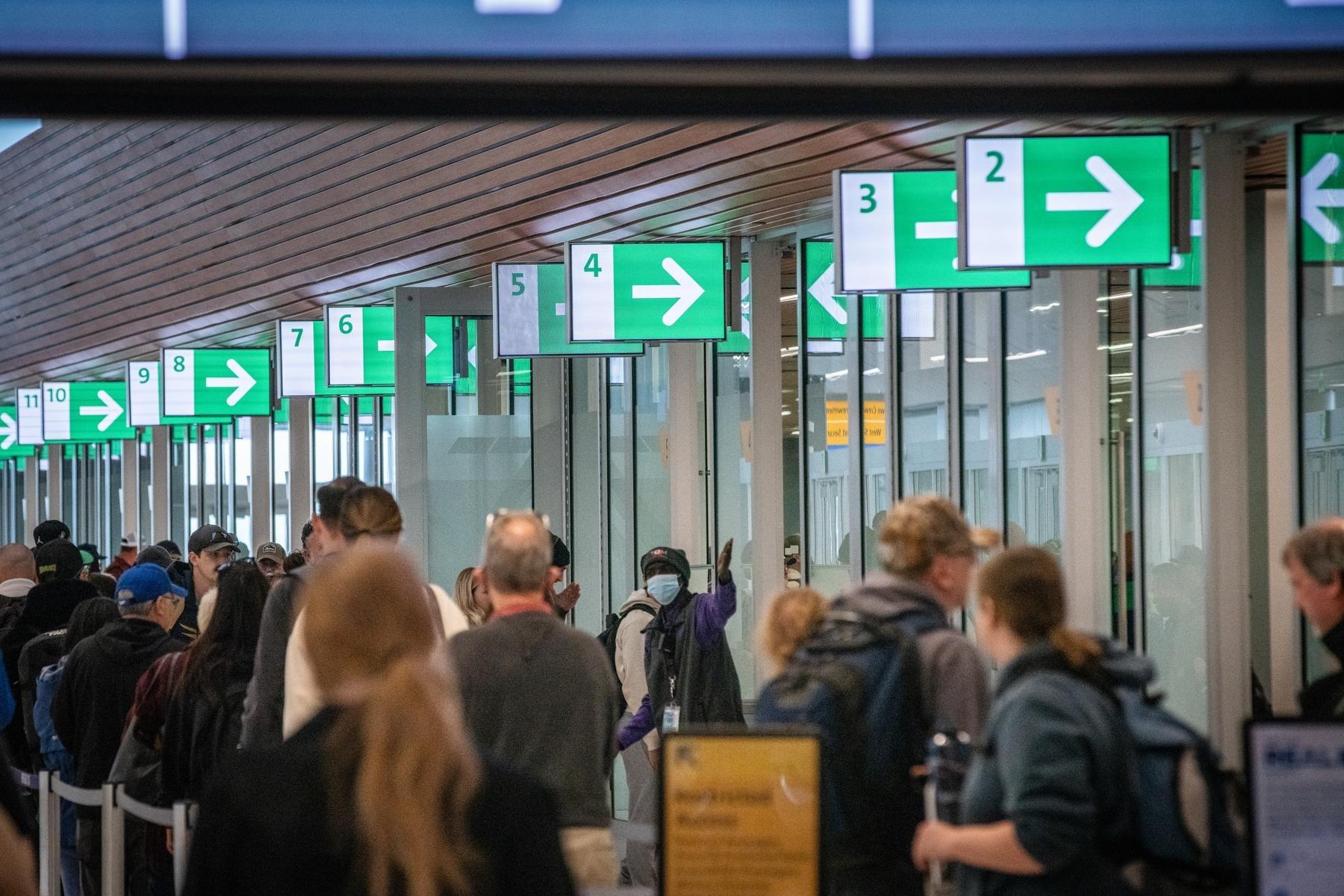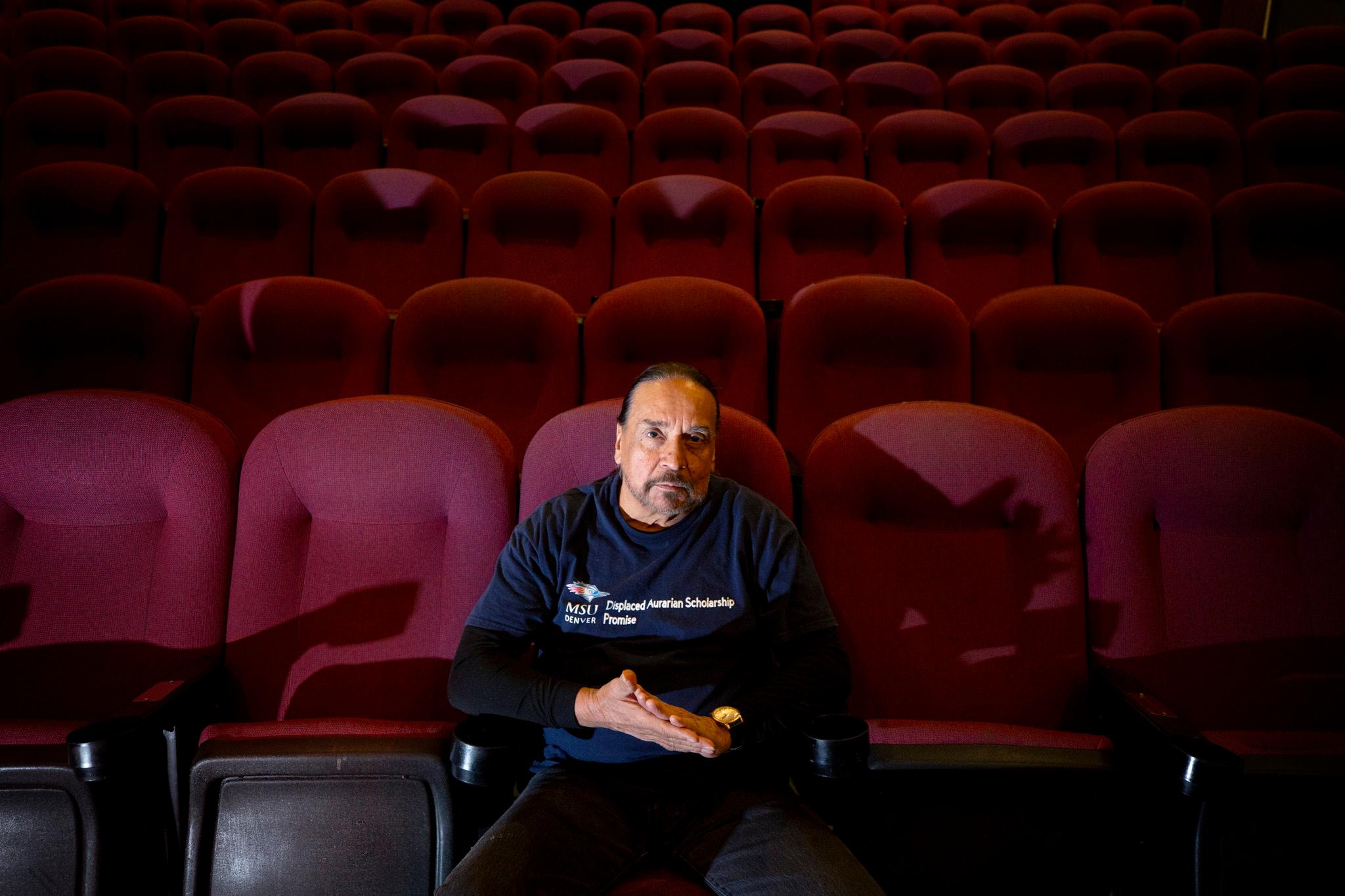Editor's note: This story is part of our Street Week, which runs Dec. 14-18 and will focus on Bruce Randolph Avenue. Find more Street Week stories here.
Earlier this year when the pandemic struck, families were lining up around the block for food just south of Bruce Randolph Avenue. Almost all the children at an elementary school north of the avenue are eligible for free or reduced lunch. And on the street named for a man renowned for feeding the hungry, a church is scrambling to keep up with a growing crisis.
It's been more than two decades since the death of "Daddy" Bruce Randolph, whose barbecue restaurant was on the stretch of 34th Avenue from Downing to Dahlia streets that was named for him in 1985, and hunger continues to haunt Cole and other neighborhoods through which Bruce Randolph Avenue runs.
As need in the area has been exacerbated by the pandemic, neighbors continue the tradition of the man universally known as Daddy Bruce, who didn't just feed people, but helped them help themselves.
After losing her job at a produce warehouse that had to cut back because of the economic impact the coronavirus, Rhonda Garcilaso heard from a colleague who also had lost work about the pantry in the basement of the Epworth United Methodist Church at the corner of High Street and Bruce Randolph Avenue in the Cole neighborhood.
"The COVID is hurting a whole lot of families," Garcilaso said.
Garcilaso started visiting Epworth to both pick up food for herself and to help out at the pantry. She said her experience serving people at the pantry might help her find a new job.
"I'm learning more," she said, adding that it was important to think positively. She occasionally brings her teenage daughter to volunteer alongside her at the pantry.
In early September, Rose Milon, who directs the food pantry, watched Garcilaso push a food-laden cart from a storage area in the church basement down the hall to the pantry.
"She's a hard worker," said Milon, a 75-year-old who has lived in northeast Denver since she was 12, when she moved to Colorado from Missouri with her mother.
Milon, a retired bank call center staffer who once managed a school cafeteria, can track growing need at the pantry in part by what she spends at the Food Bank of the Rockies to stock her shelves. In March, when the pandemic began, the bill was $280. In June, it was $801.10. A COVID relief grant from the city and church funding has helped her keep up.
"We just give out what we can," Milon said. "A lot of times, we do run out of food."
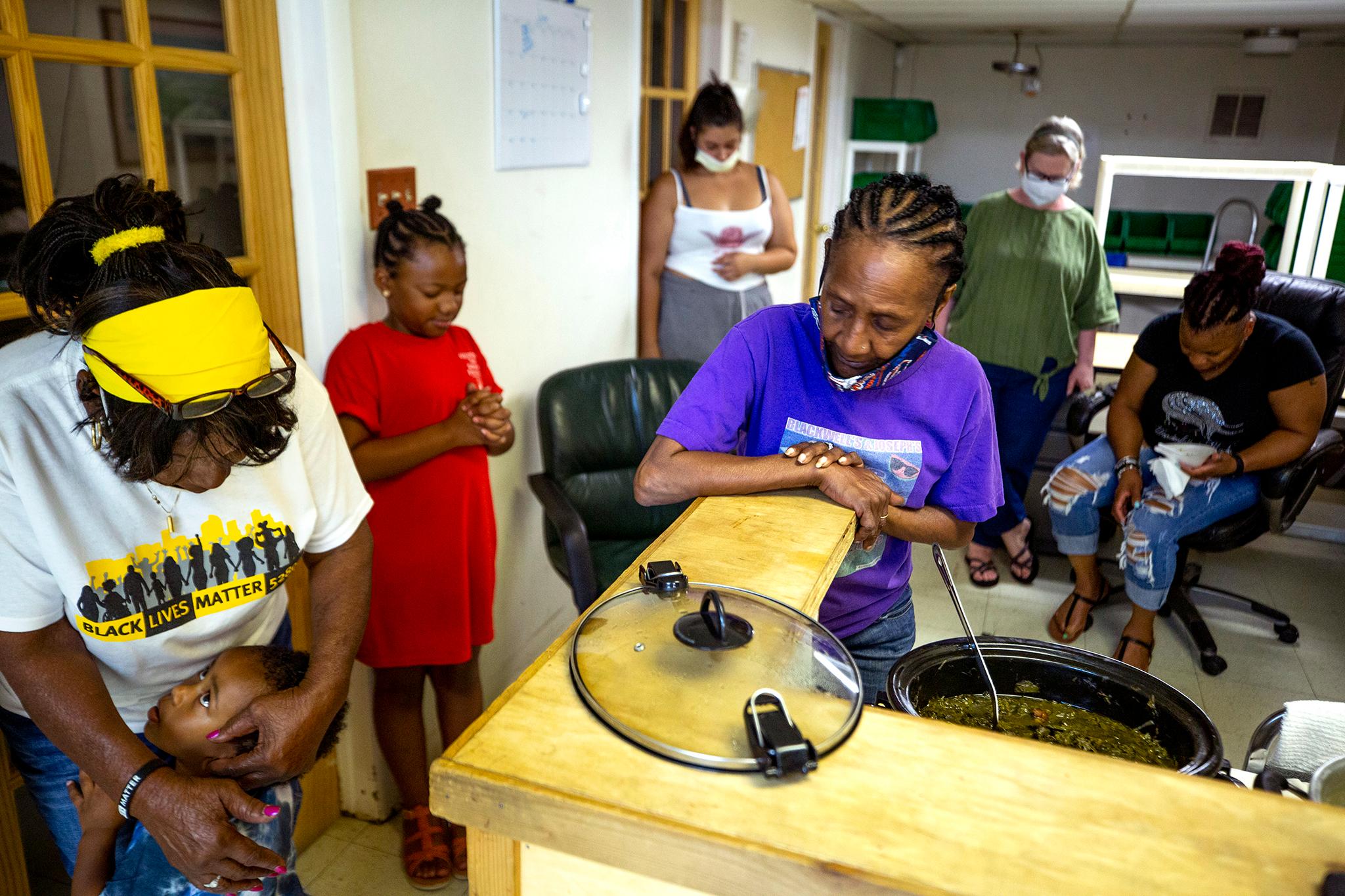
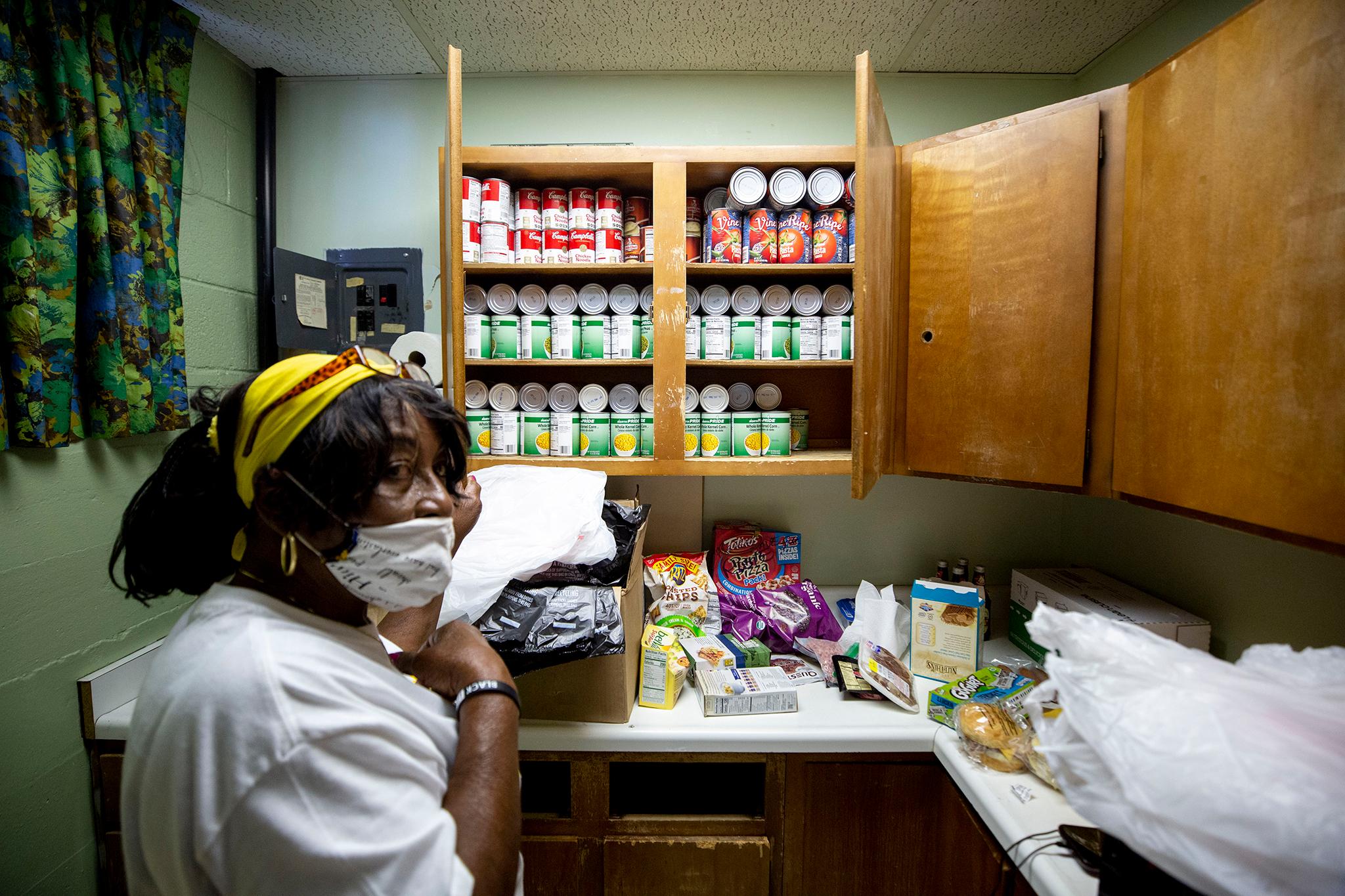
Milon said that before the pandemic, people were only allowed to collect food from the pantry once a month. Now people can come as often as they need to the pantry, which is open Tuesdays and Thursdays.
"You have a few people who are going to take advantage and be greedy," Milon said. "I don't have time to worry about that. That's between them and their God."
The Epworth pantry closed for two weeks in March to give Milon and her team time to do a deep clean and determine how they would change procedures to allow for the social distancing. When it reopened, Epworth switched from allowing people to choose their own food items -- as they would at a store, but without having to pay at the end -- to pre-packing boxes that could be distributed at the door. Pantries across Denver took similar steps to avoid crowding inside.
"When the COVID started, we knew the people down here had to be served," Milon said. "We figured out a way that we could do it."
In addition to its pantry, Milon's church has a foundation that in 2003 took over the tradition that Daddy Bruce began in the 1960s of distributing Thanksgiving meals to needy families. This year, Epworth organized a COVID-safe drive-through on Feed a Family Day on Nov. 22. Volunteers formed an assembly line on Bruce Randolph Avenue to load 7,000 boxes filled with family-sized meals into cars. Pastor Ron Wooding, who helped bring Daddy Bruce's tradition to Epworth, said that was 2,000 more boxes than last year. He had hoped to feed 10,000 but said he was hampered in part by COVID restrictions that closed places such as libraries where he would have put up posters about the event.
Daddy Bruce "wanted to be like Jesus and feed 5,000," Wooding said.
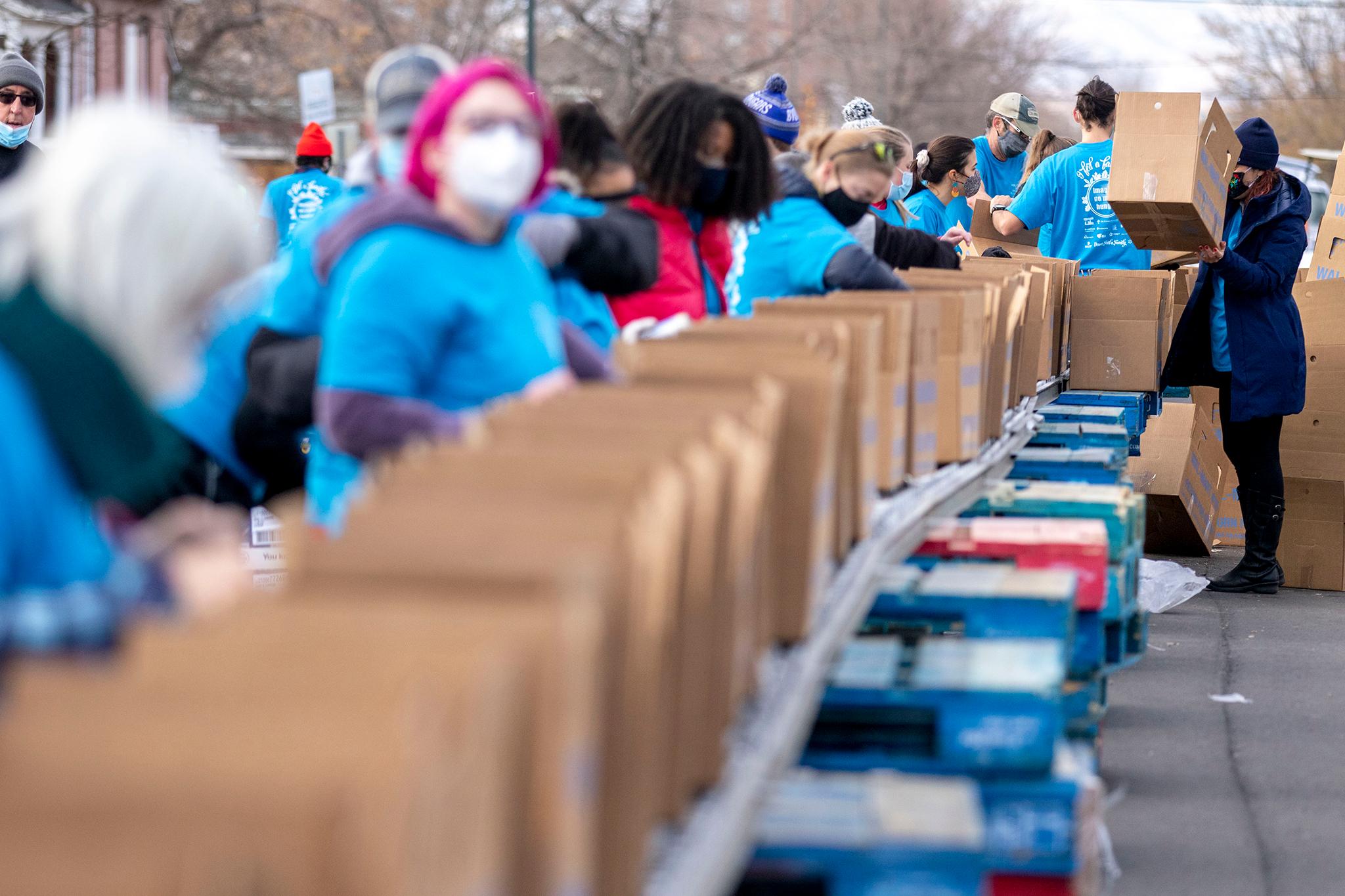
A few blocks from the site of the old Daddy Bruce's B-B-Q, Wyatt Academy classes are held in a stately, 133-year-old brick school building. More than 90 percent of the kindergarteners through fifth graders at the Denver Public Schools charter are eligible for free or reduced lunches.
"It's hard to sometimes comprehend that (food insecurity) is still very, very much the case" among the school's 180 or so families, said Kate Mishara, who leads Wyatt's staff. She also has been a first-grade teacher and a community outreach administrator at the school, where she has worked for more than a decade.
Two years ago, Mishara said, school staff set out to talk with Wyatt families, asking them, "What are the things that are keeping you up at night?" Chief among their worries were being able to afford food and clothing.
"How can we expect our students to be set up for success if they're hungry and don't have a clean uniform?" Mishara said.
Shortly after those conversations with parents, Wyatt opened its Family Empowerment Center with help from donors. The basement-level center opened with a pantry where families can get free food and clothing, and a laundromat and a computer lab that can be used without charge.
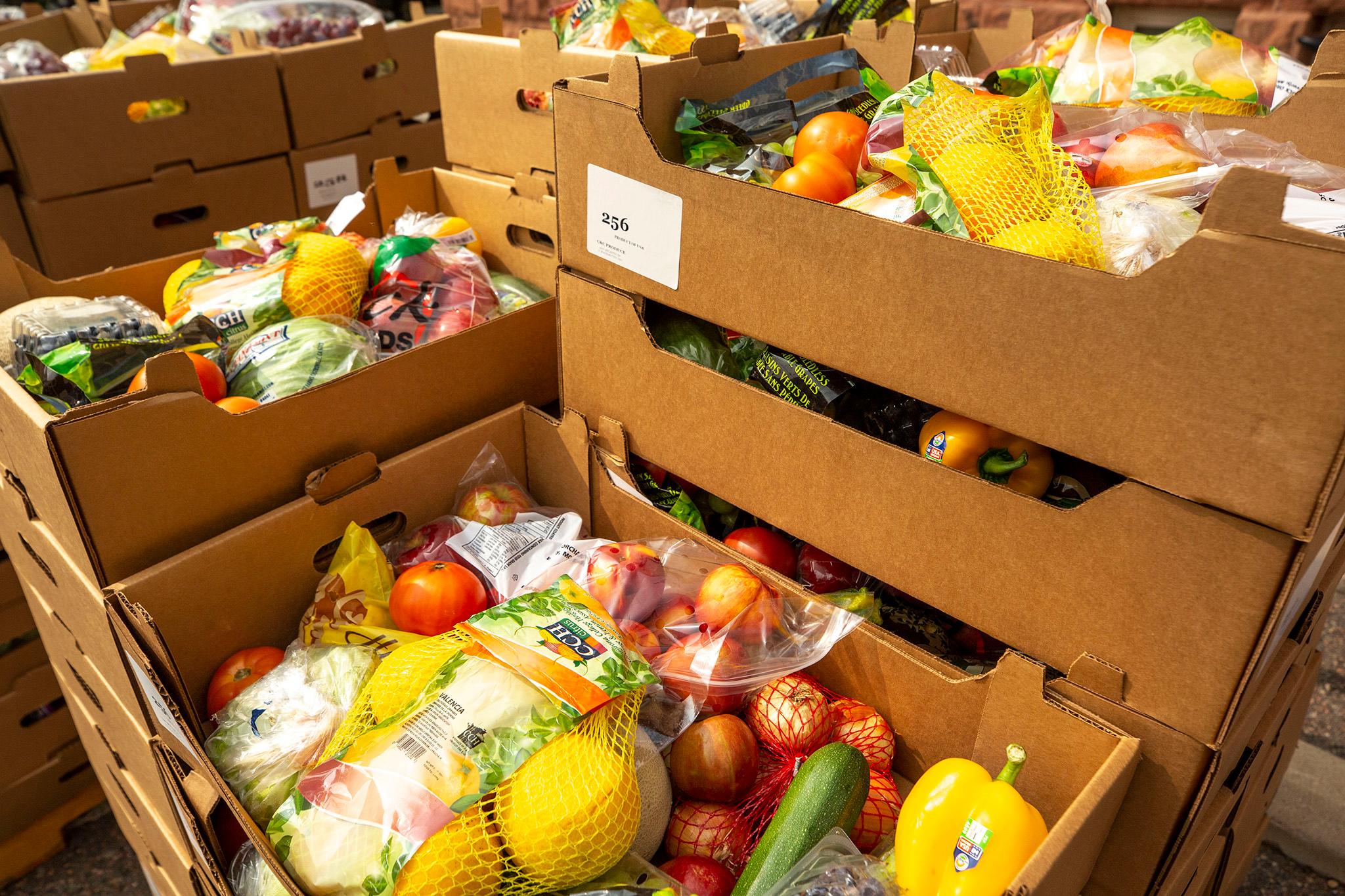
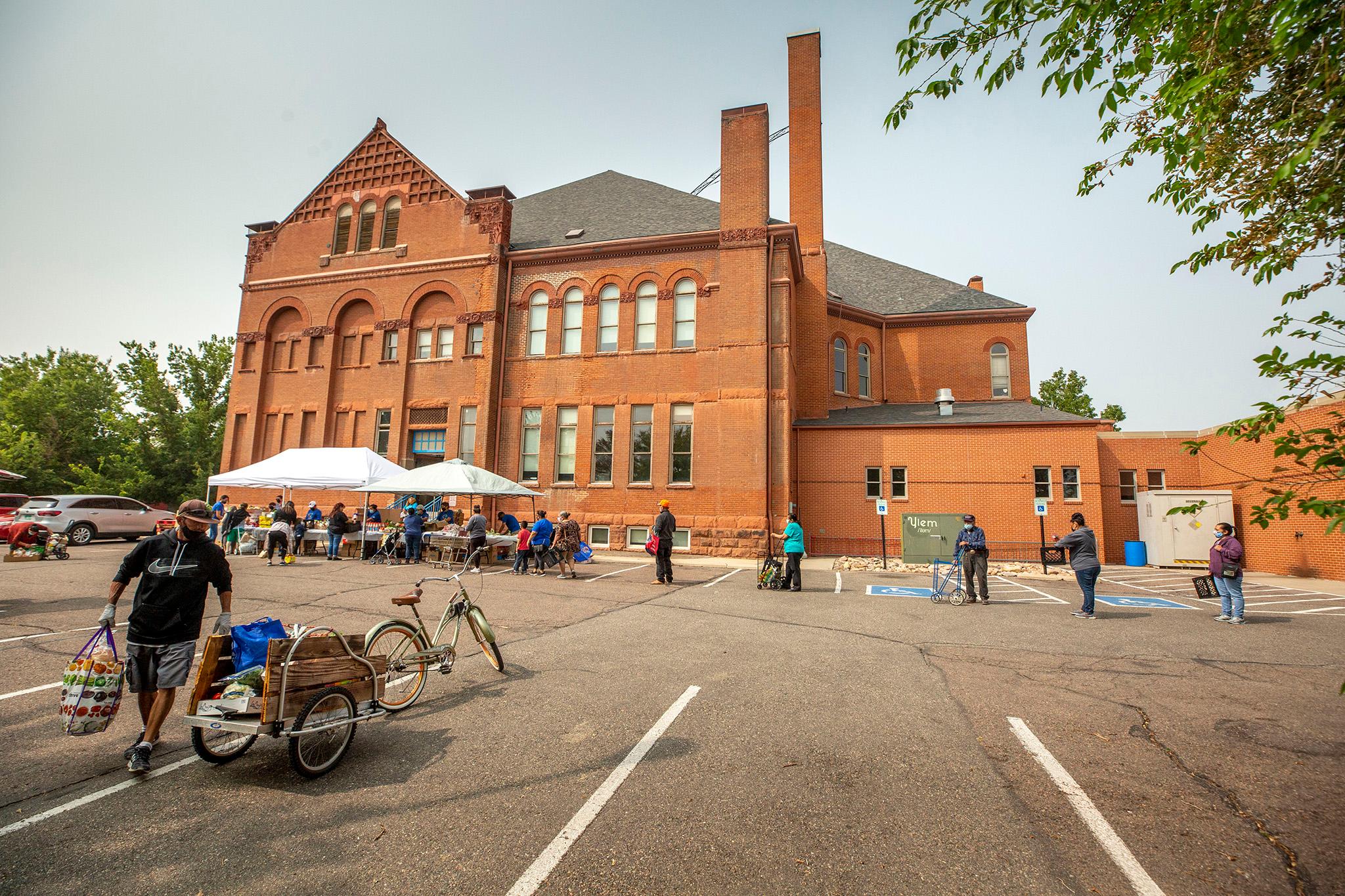
Mishara believes the Family Empowerment Center has had an impact. In January, Wyatt was rated among the highest performing schools in DPS after ranking among the lowest performing.
When COVID closed schools, Wyatt's clothing pantry, laundromat and computer lab remained opened to families, with social distancing enforced. The food pantry was moved outside, where there was space to meet growing needs.
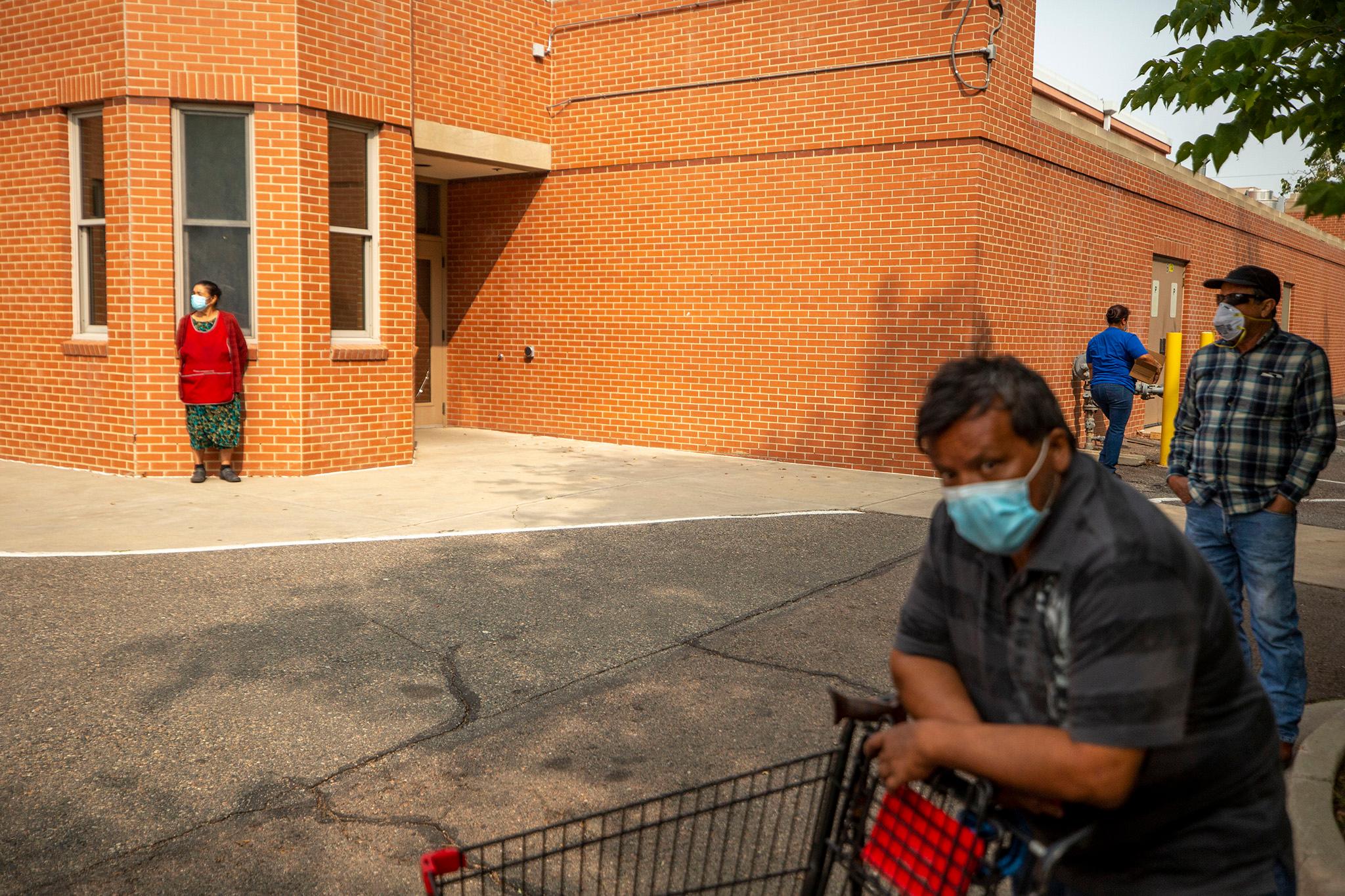
On Wednesdays, volunteers chat in Spanish and English as they set up tables on the tarmac at a side door and arrange such items as cauliflower, lettuce, potatoes, yogurt and butter.
And "a lot of fresh fruit," said Melody Means, Wyatt's dean of culture.
"We have a lot of everything," said Maria Saucedo, a pantry volunteer whose sister has children at Wyatt. "It is nice to help a lot of people."
Before COVID, the pantry served 60 to 75 visitors a week. Since the pandemic, that has increased to 100 to 150, Mishara said.
Mishara estimates that half the families picking up at the pantry have children at the school, and the other half live in the neighborhood but do not have children at Wyatt.
"We're part of the community," Mishara said. "The most special thing about Wyatt is that this really is a community school."
Nonprofit partners such as We don't Waste, Denver Food Rescue and Conscious Alliance help Wyatt's pantry offer fresh produce in a part of Denver that has plenty of fast food restaurants but few places selling fresh, affordable food. Wyatt's effort is appreciated.
"Just look at all that gorgeous green and red," Jan Chavez said, pointing to kale and tomatoes piled on the tables. "And milk!"
Chavez and others walked away from Wyatt with free fruits and vegetables they'd have to drive out of the neighborhood to buy. The area has no full-service grocery store, an issue residents have deplored for years.
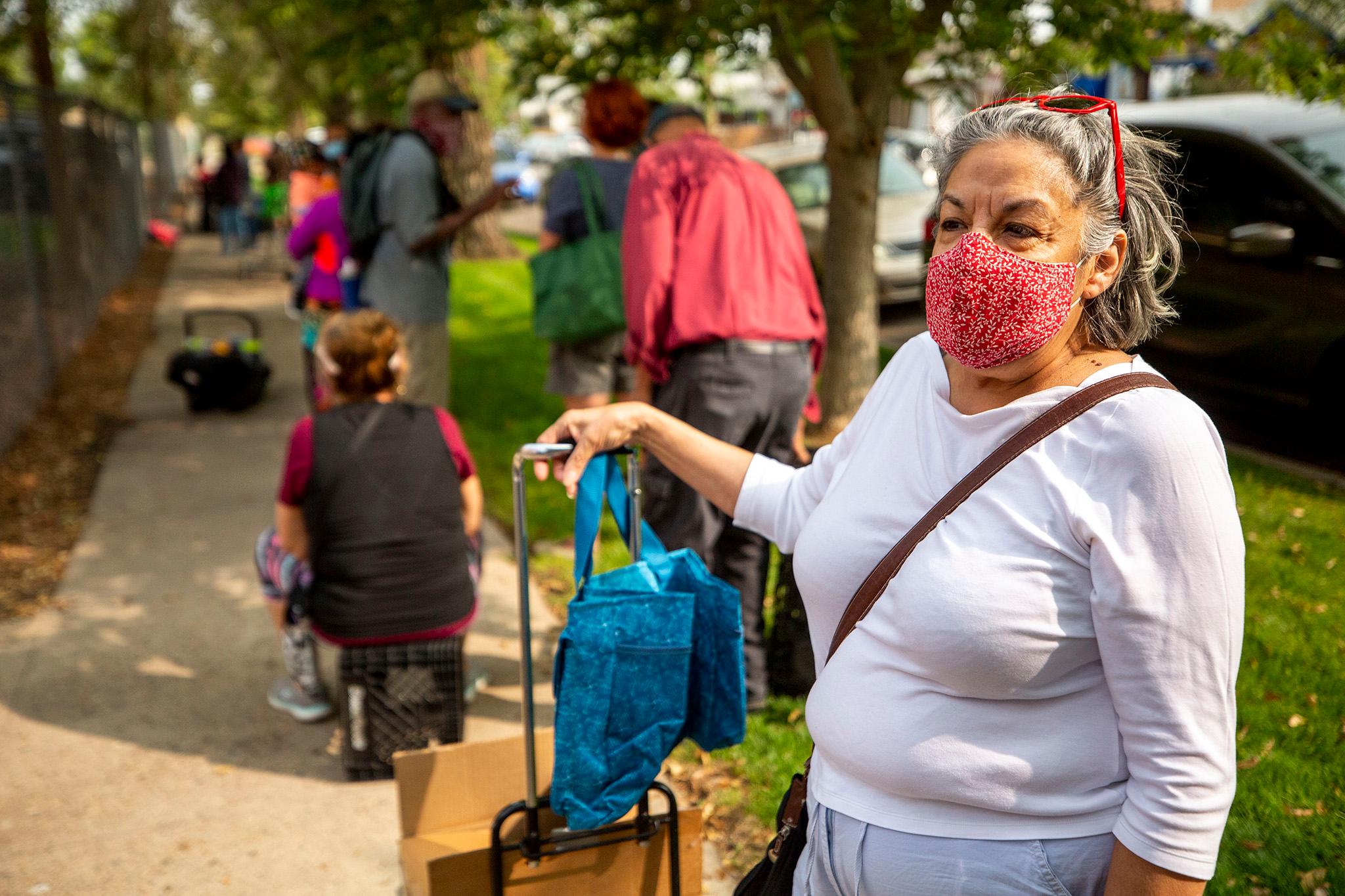
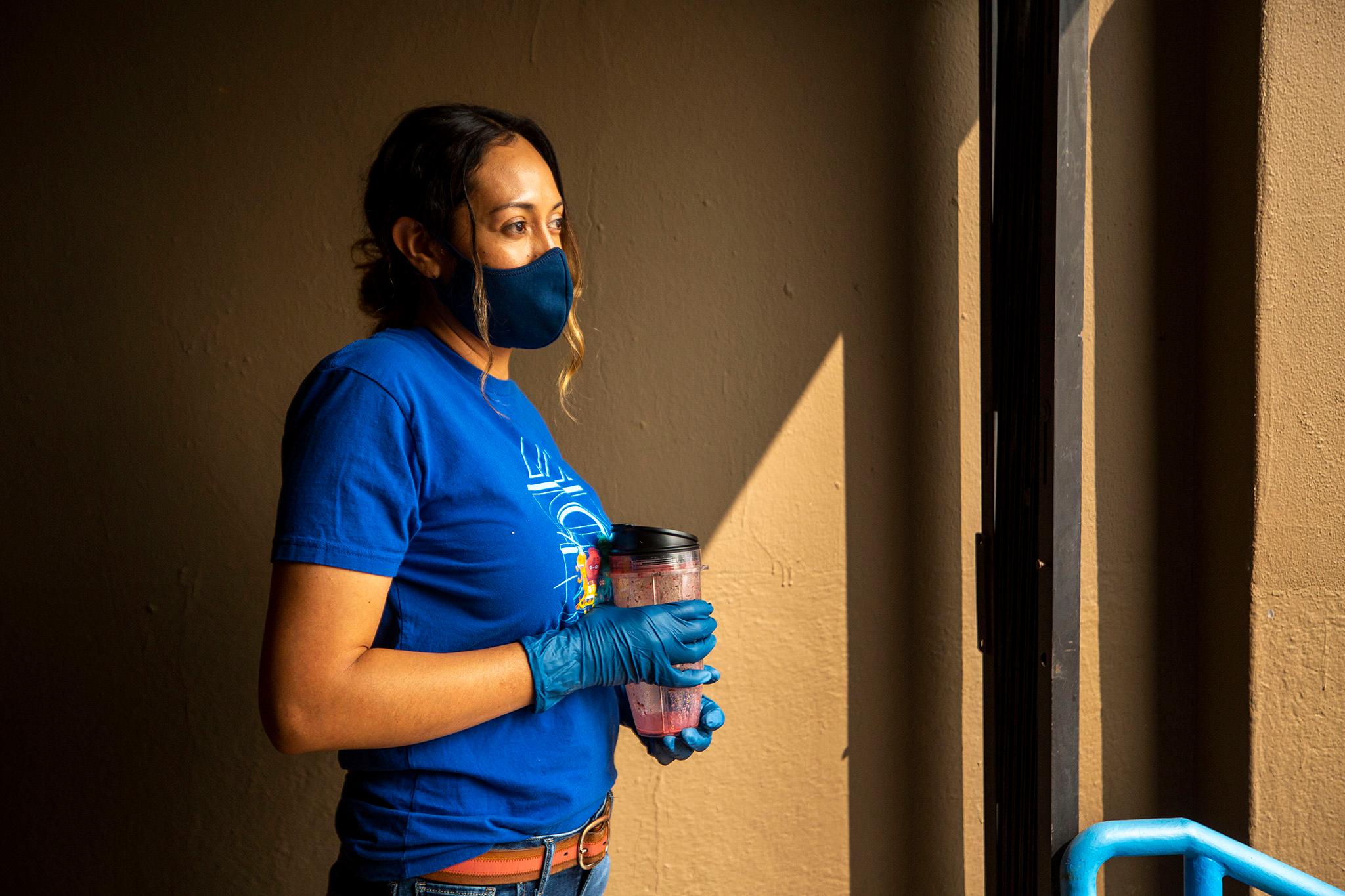
Blueprint Denver, a city policy document, identified Cole, Clayton and Northeast Park Hill -- all neighborhoods Bruce Randolph Avenue touches -- as among those in the city with the lowest access to opportunity, measured in part by a lack of resources such as full service grocery stores, job and basic services.
"Many areas with low access to opportunity are also areas where the majority of residents are people of color," Blueprint Denver's authors continue. "The pattern illustrates the need to improve equity across neighborhoods and to remove barriers to opportunities that negatively impact many communities of color."
Chavez, the woman marveling at fresh produce at Wyatt, attended the school when she was a child. She's now retired from a job counseling low-income students to help them go to college. Chavez herself has a teaching degree from the University of Northern Colorado and a masters in counseling from the University of Denver. She lives in the Cole house her parents bought when she was six months old, which has given her housing stability. She said neighbors may rely on the pantry to keep their food bills low so they can afford the rent to stay in Cole.
Kevin Holwerde Hommes directs Twin Parishes Food Bank, a pantry just around the corner from Wyatt. He said that during his four years at Twin Parishes, he has seen displacement from Cole.
Holwerde Hommes said that the year he came to the pantry, it switched from serving families from across the city to focusing on those in the 80205 and 80206 ZIP codes. Visits dropped off, and Holwerde Hommes realized the pantry had been serving families that had once lived in the area but had moved when housing costs grew too high. Some told him they kept returning to Twin Parishes because they were unable to find pantries in their new neighborhoods, or the pantries they did find did not stock as much fresh food.
A 2016 study by Denver's economic development department identified Cole, Clayton and North Park Hill as among the neighborhoods vulnerable to involuntary displacement. The areas seem to be going the way of neighboring Five Points, with small bungalows being scraped and replaced with larger, modern homes. Many of the newcomers are white in a part of town that has long been home to Black and Hispanic Denverites.
"It's easy to forget that there are people who don't have enough money to buy what they need at the grocery store or can't get to the grocery store," Holwerde Hommes said. "There's still a lot of struggle. And a lot of the people who are struggling have been here a long time and have every right to be here."
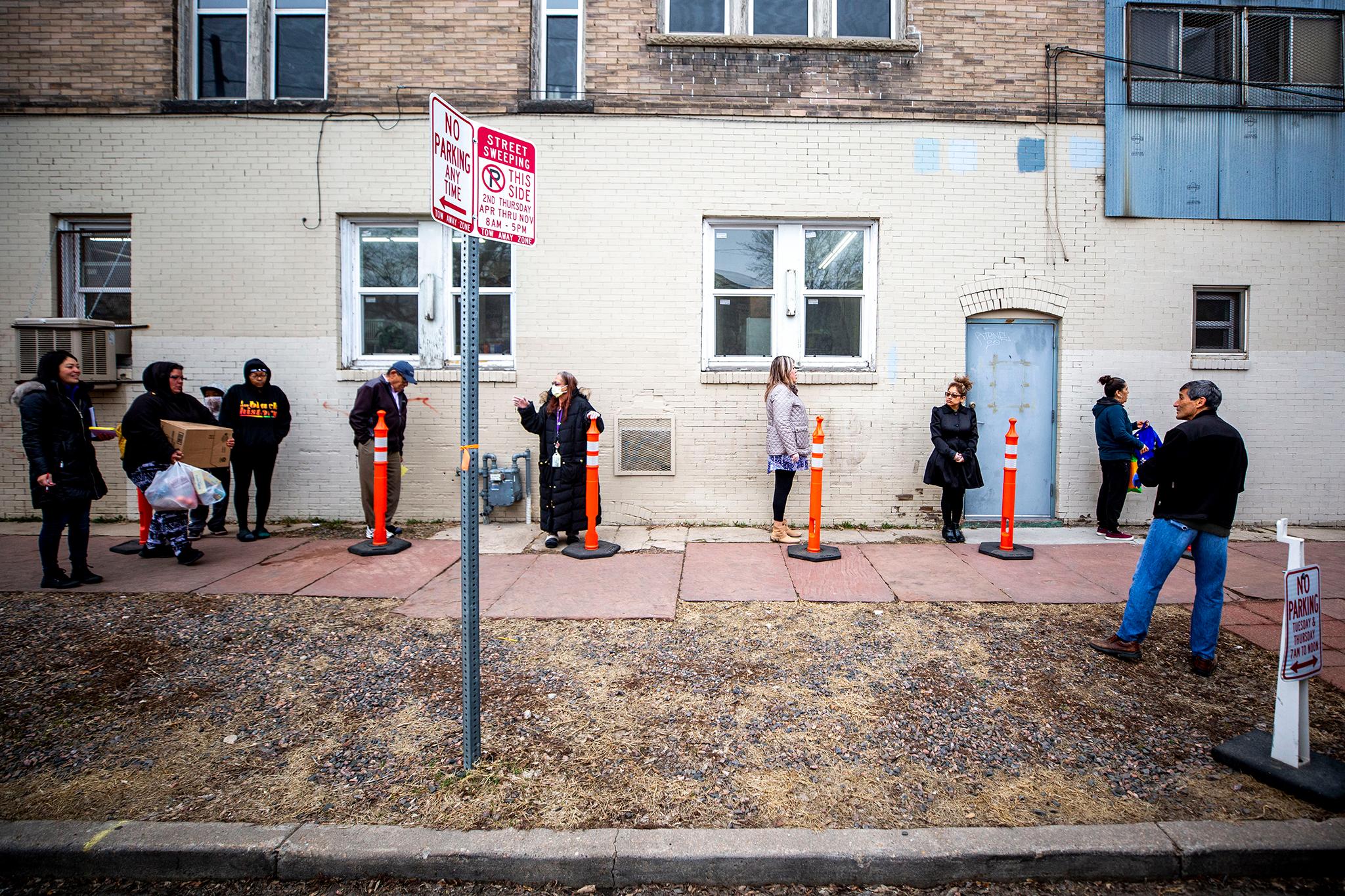
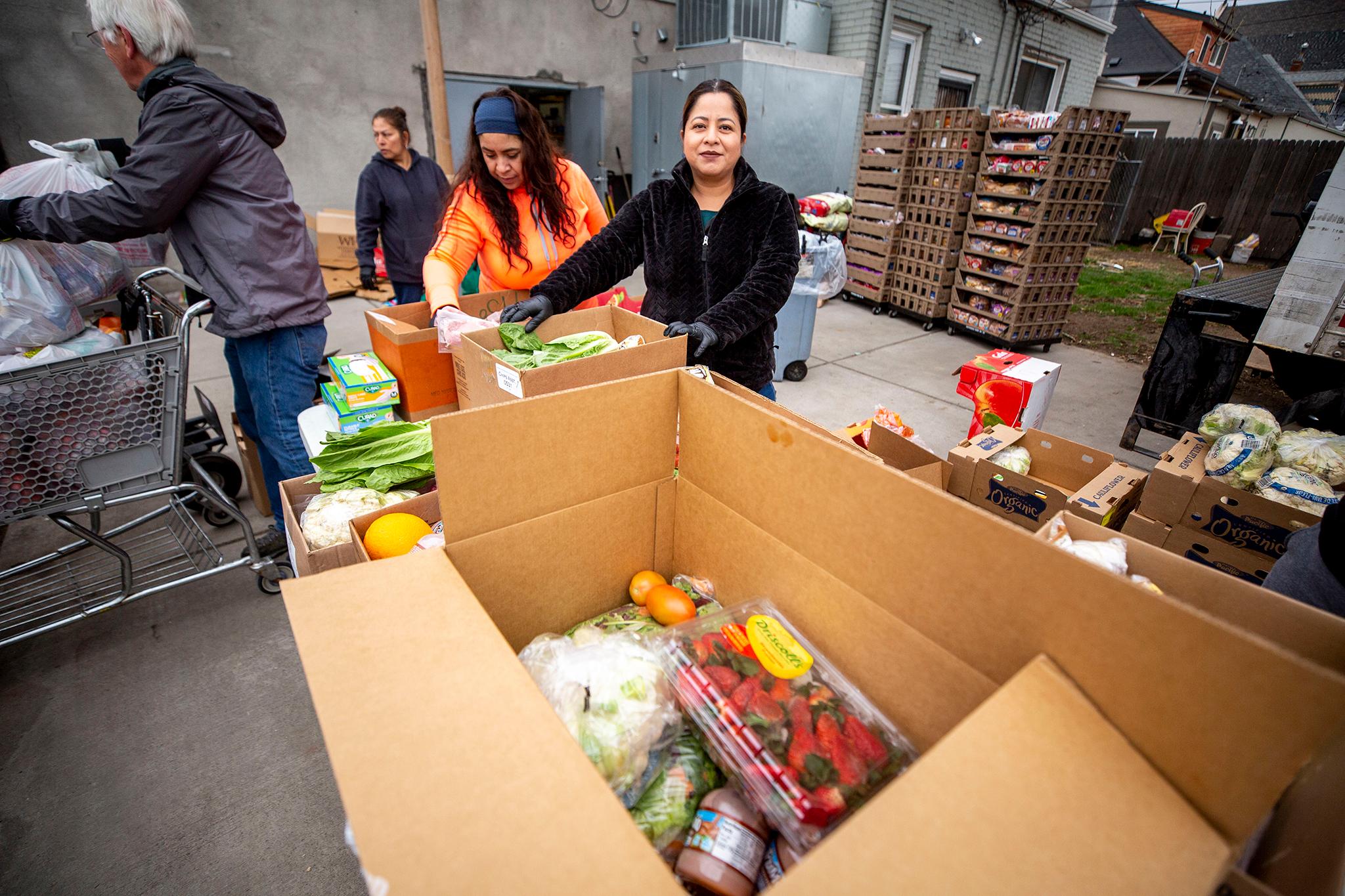
Twin Parishes, which distributes food on Tuesdays and Thursdays, is located across 37th Avenue from an affordable housing complex owned by Catholic Charities. Holwerde Hommes noted Mile High Ministries and Habitat for Humanity are collaborating on a project that will bring 61 income-restricted apartments and 17 affordable for-sale town homes to a lot a few blocks east on 37th. Until the apartments and houses are built, the lot will be occupied by a tiny home village for women and transgender people experiencing homelessness. Holwerde Hommes hopes for more such projects.
Further east and a bit to the south of the Twin Parishes pantry and the Wyatt school, Clayton Early Learning educates children from infancy to the age of 5 at low or no cost on a campus that was once home to an orphanage. The campus also has vegetable gardens and a small orchard, produce from which goes home with students and is used in Clayton's kitchen, which typically serves 1,000 meals a day.
Becky Crowe, Clayton's president and CEO, said that when the campus had to shut down because of COVID in mid-March, "we really had to pivot and figure out how are families would be served."
She wasn't just talking about managing distance learning. Crowe said that the 200 children on campus every day get 80 percent of their calories during the week from school meals. Parents who were struggling before the pandemic lost work after the disease arrived.
Working with the Food Bank of the Rockies and others, Clayton created a pantry where families could pick up food, diapers, books and more. Organizers spread the word that the first day of the operation called Clayton Cares would start at 3 p.m.
"By 2 o'clock we had a line of cars wrapped around the block waiting for food," Crowe said.
Kristen Wilford-Adams, Clayton's nutrition and wellness specialist, said the campus gardens remained open for families to come to pick fruit and vegetables during the few months that classrooms were closed. Staff also called parents to help them sign up for food stamps. Wilford-Adams said Clayton staff have been pushing for a grocery store for the area.
"Food insecurity with our families that live in these neighborhoods has always been there," Wilford-Adams said.
The pandemic has exposed economic inequalities, Crowe said.
"The root of so much of this is about economic insecurity, and so much of economic insecurity is related to systemic racism," Crowe said.
The history of opportunity being denied because of race is part of the history of Clayton. Before wealthy businessman George Washington Clayton died in 1899, he arranged for most of his fortune to be used to establish the George W. Clayton College, an orphanage for "white male orphans of reputable parentage."
Now Clayton is open to all races and provides an educational foundation that poor children often are denied. Clayton also supports their parents, who can see a mental health or job counselor on campus after dropping their children off. A social worker assigned to each family helps parents set goals that could include furthering their own education.
"Providing care is an act of justice," Crowe said. "We also need to name that that's not always been the case at Clayton."
In 2013, northeast Denver residents affiliated with the nonprofit LiveWell, which promotes healthy food and physical activity, set out to study food in their neighborhoods.
A report they produced the following year declared that "low consumption of healthy food in our neighborhoods is a social justice issue." They had found in surveying their neighbors that 40 percent sometimes or always were unable to afford to eat balanced meals. The researchers lamented the area's proliferation of fast food restaurants. They found corner shops stymied by the slim profit margin and the brief shelf life of fresh fruits and vegetables.
The 2014 study concluded that residents should lead the way in addressing the problem. They have.
Tash Mitchell, who is active in the community group that produced the 2014 study, has roots in Cole that go back to her grandparents. She sees healthy eating as part of a healthy life. She is a coordinator for My Outdoor Colorado, which connects young people to the outdoors with nature education and other programs. Mitchell said people involved in the 2014 study helped get the Colorado Cottage Foods Act passed in 2012. The act allows small-scale residential food preparation and sales. She can buy eggs from neighbors now.
"It's super-local," Mitchell said.
It doesn't get more local than backyards, where neighbors are growing their own food. They're also raising vegetables in Denver Urban Gardens plots, including one at Bruce Randolph Avenue and Lafayette Street. Mitchell, whose mother still grows collards and squash, once had little faith in her own gardening abilities.
"I used to just kill plants. But I just kept trying and trying," Mitchell said. "What is it to go in your yard and pick peppers and onions and broccoli? There's a proud moment when you pick food that you grew and you cook it yourself."
Mitchell said she was encouraged by local food experts such as Beverly Grant, whose Mo' Betta Green MarketPlace brings farm stands to the city's food deserts. Grant has an urban farm on the campus of the Mental Health Center of Denver's Dahlia Campus for Health & Well-Being, which sits at the east end of Bruce Randolph Avenue in North Park Hill, where Grant grew up. Grant supplies her farm stands from plots at the Dahlia Campus and another, called Seeds of Power Unity Farm, in Cole not far from the Denver Urban Gardens plot on Bruce Randolph Avenue.
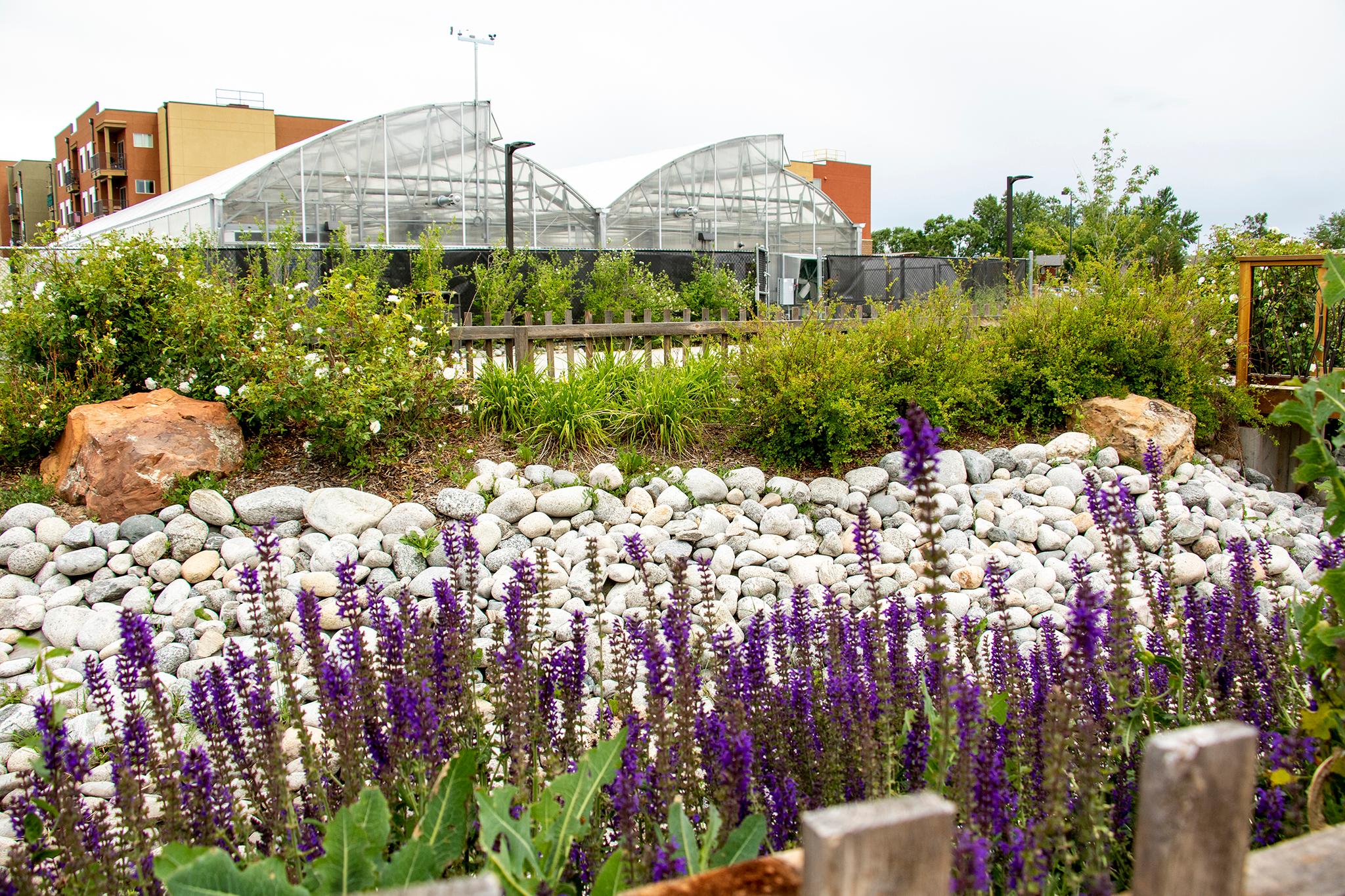
Mitchell also counts Gerald Hamel in her food network. Since 2013, Hamel has helped to organize HarvestShare, a festival at which backyard gardeners can swap produce and the community can celebrate healthy eating and living. What began in one Clayton park in 2013 grew to include workshops on signing up for food stamps, storytelling, recipe exchanges and sit-down dinners shared by housed and unhoused neighbors. This year's HarvestShare, in September, took place in six east Denver parks, allowing for social distancing.
"People have always come together around food," Hamel said. "It's a common, basic need. It's something we all share. You might do something with a different spice, but there's a commonality. And if you can have people sit and eat together, it builds relationships."
Hamel said Daddy Bruce saw a need not to not just feed people, but to draw them together. Mitchell also said Daddy Bruce's legacy isn't just about food.
Daddy Bruce "cultivated this spirit of love and sharing in ways that keep paying off," Mitchell said. "I see it in the Denver Urban Gardens garden. I see it in the Seeds of Power urban farm. I see it in the spirit of the people who focus on food systems."

